
Taking a Bite Out of Cribbing
Find out what researchers have learned in recent years about this stereotypic behavior in horses.

Find out what researchers have learned in recent years about this stereotypic behavior in horses.
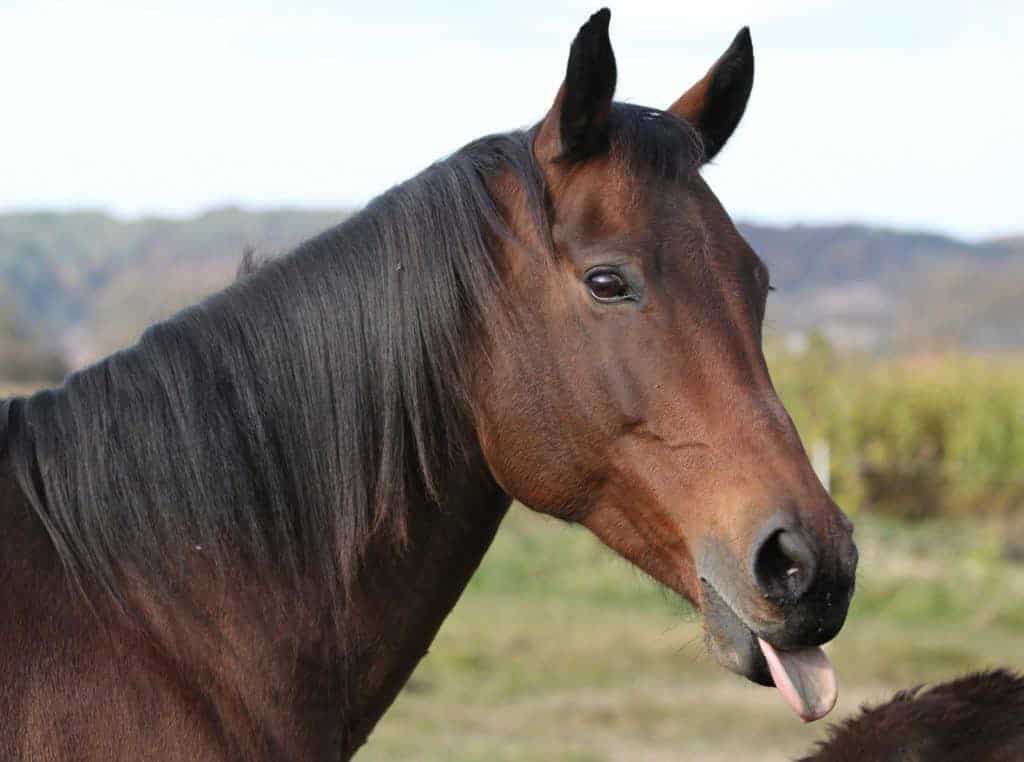
A reader wonders why her mare turns her head, grits her teeth, and sticks out her tongue.
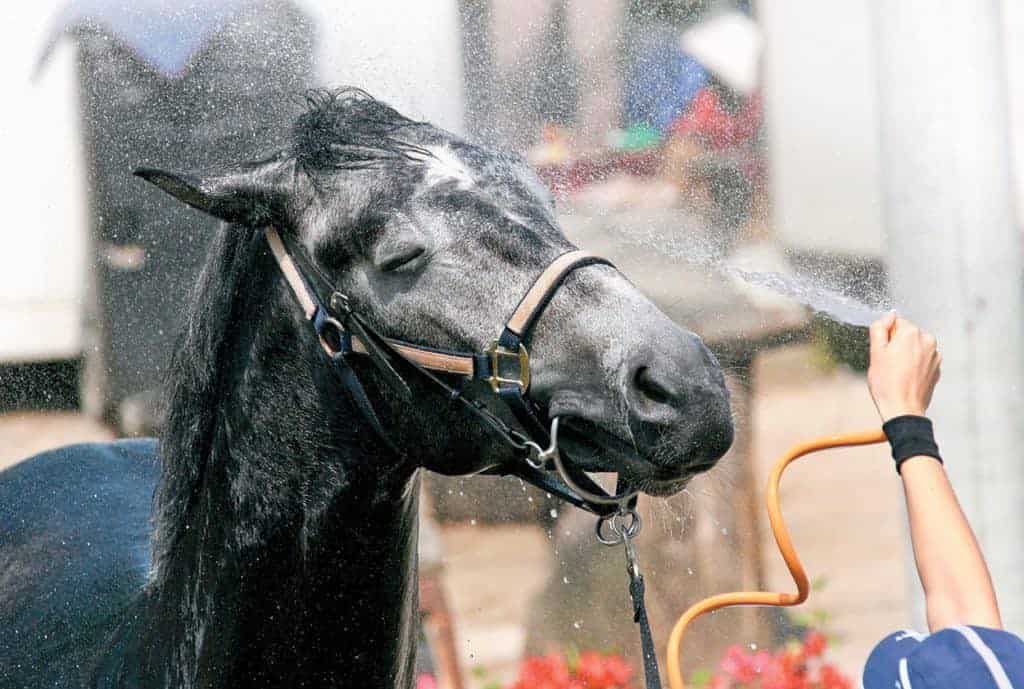
I’m considering purchasing an ex-racehorse. Are there any common behavior problems in OTTBs that I should be aware of?

Without dopamine, horses wouldn’t learn. But with too much, they can develop stereotypies. Here’s what you need to know.
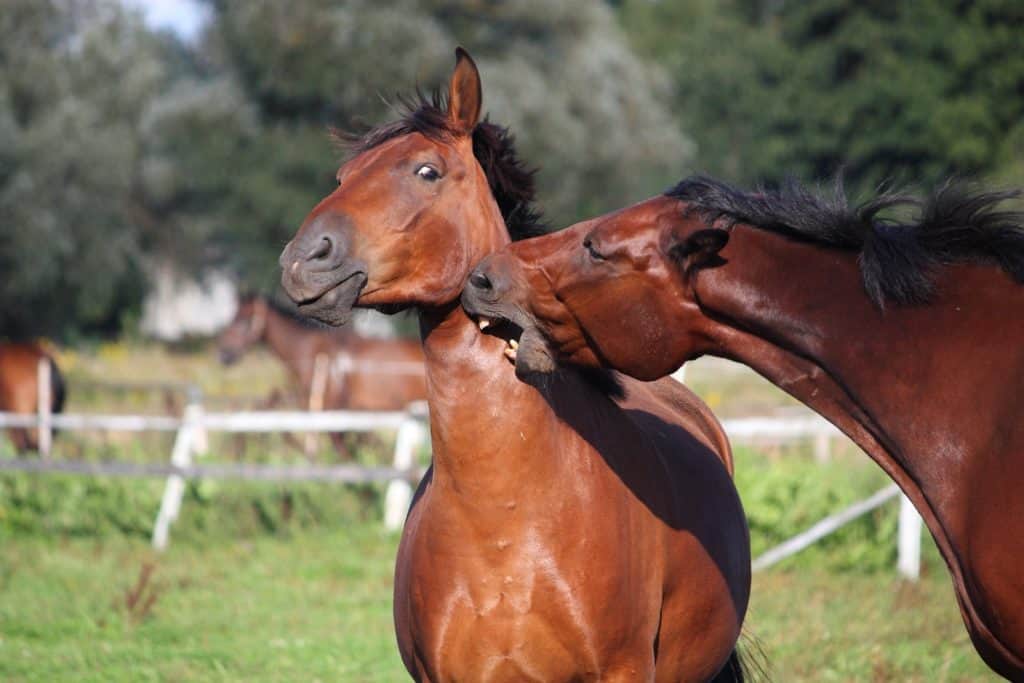
Researchers have developed a list of reasons a horse might bite. Learn the causes and how to train a horse not to nip.
Are stall mirrors recommended for horses that weave, and where could I find one that is safe and economical?
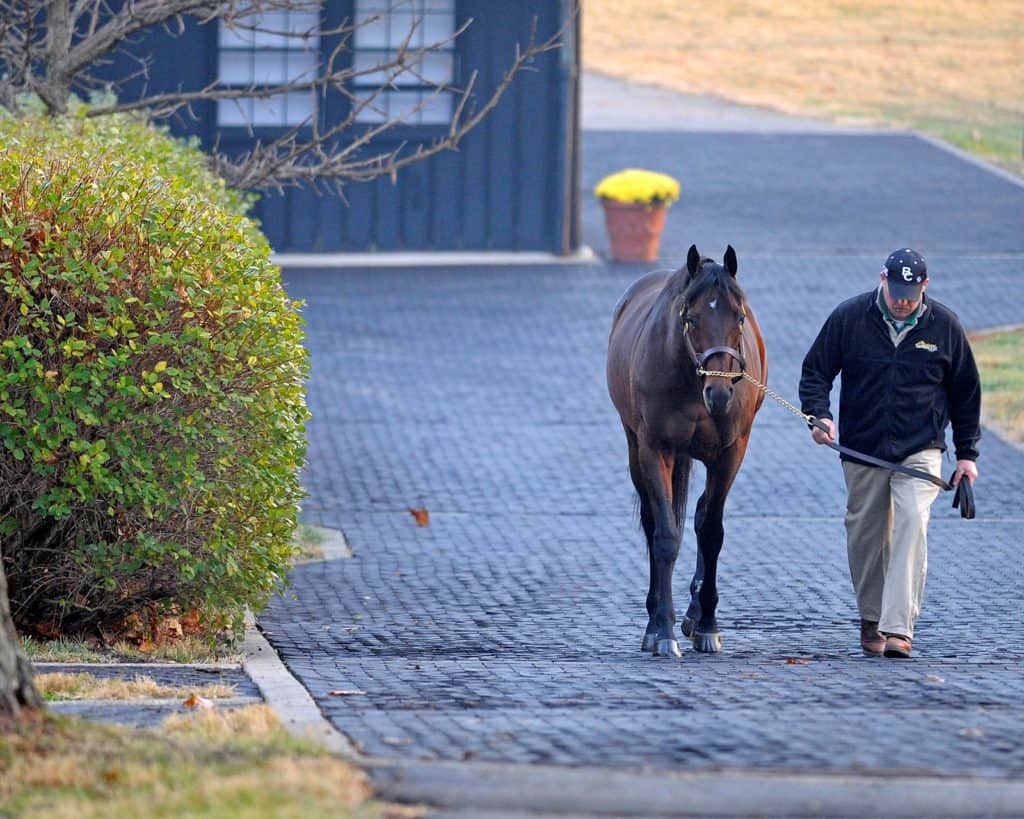
Dr. Nancy Diehl offers advice on keeping stallions happy and safe during routine handling and breeding.

A veterinarian and equine behavior expert addresses a possible learned head tossing behavior at feeding time.

Researchers’ don’t necessarily recommend preventing a horse from cribbing. Rather, they suggest maximizing a horse’s turnout time and making sure forage is available at most times.
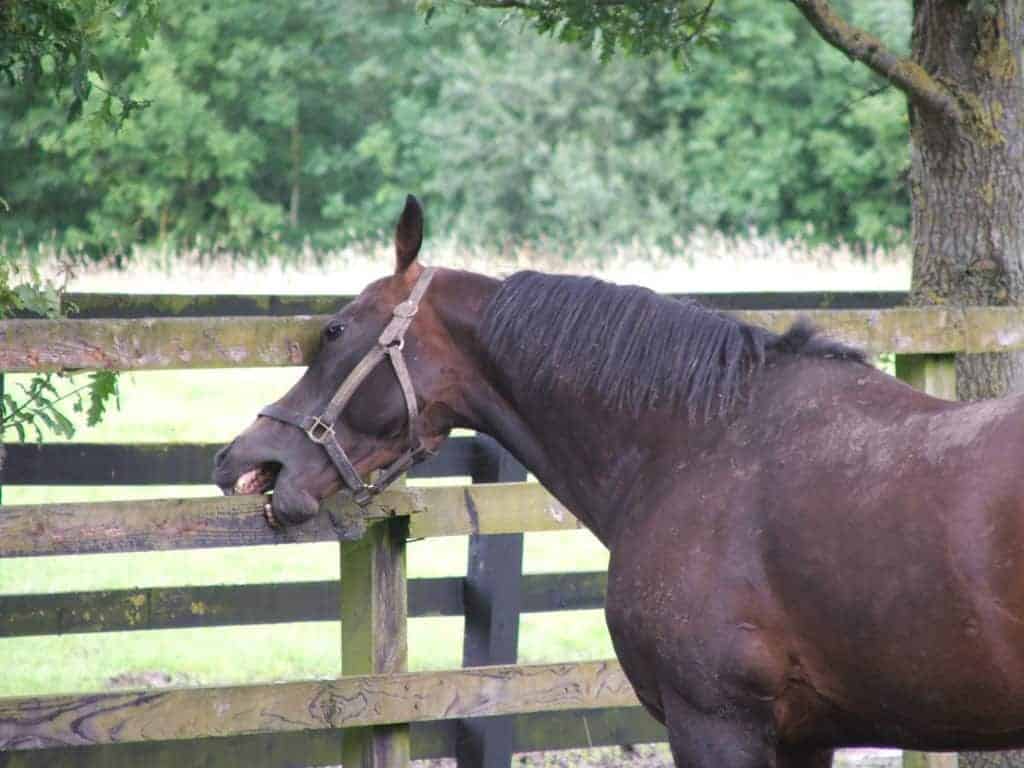
Dr. Nancy Diehl considers the use of “vice” and “stereotypies” when referring to horse behavior.
My horse has a rude habit of flashing my friends when they we visit him. How can I stop this behavior?
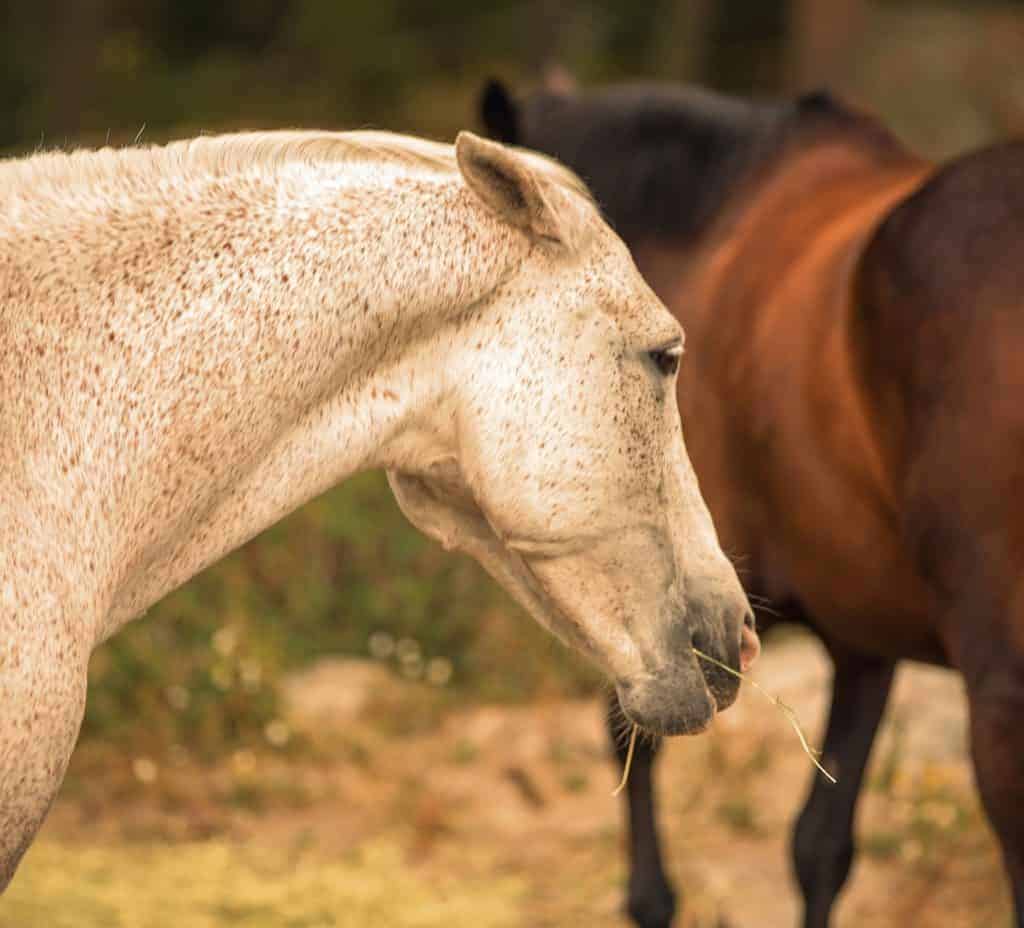
Why would my horse’s behavior change from being a reliable and willing friend to a miserable grouch?
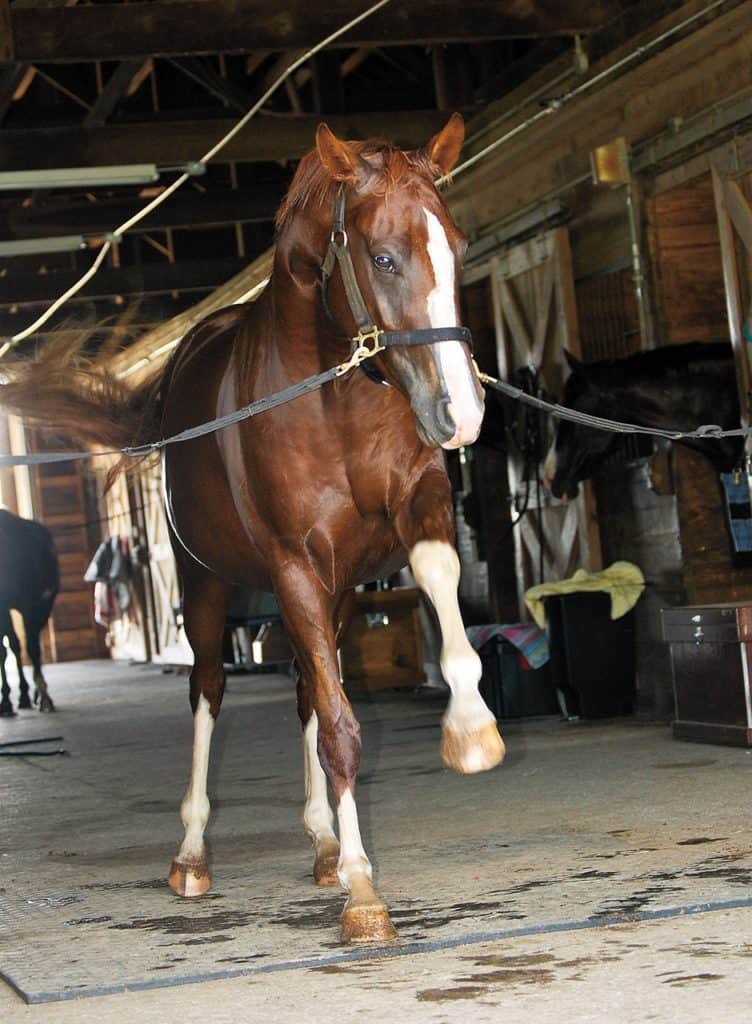
The horse strikes the ground, stall, water tank, and fence. I’m concerned he will hurt himself, destroy property, and influence my horses. What can be done to correct such rude behavior?
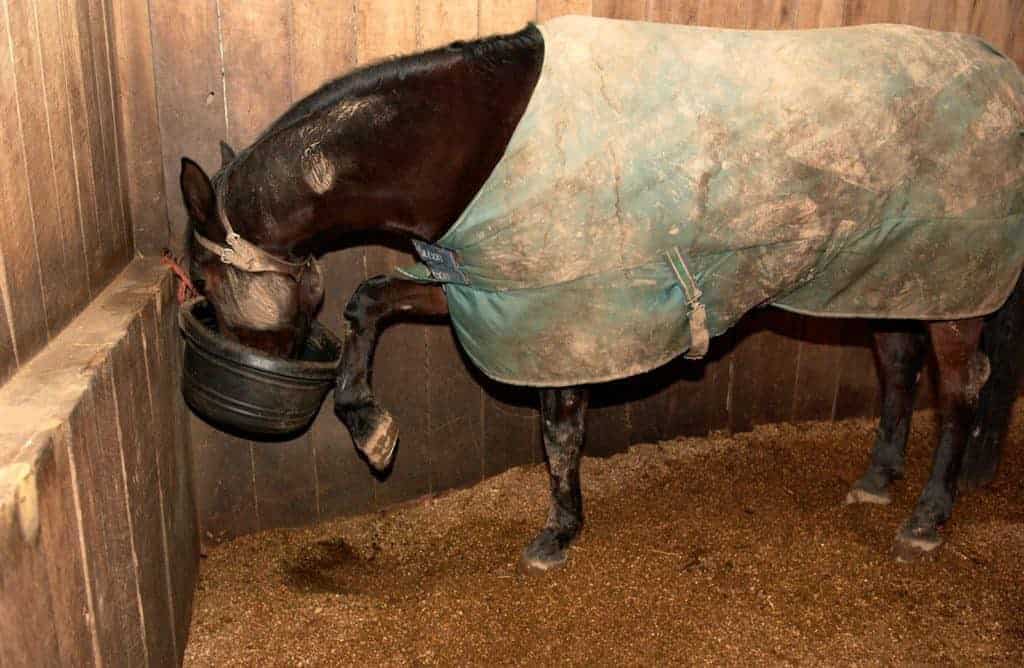
Do you have any suggestions for stopping a horse from pawing while he is eating his grain?

How can I work with a cribber so he can stop wearing his cribbing collar?
How should I handle a pony that tries to attack people when they enter his stall?
Stay on top of the most recent Horse Health news with
"*" indicates required fields